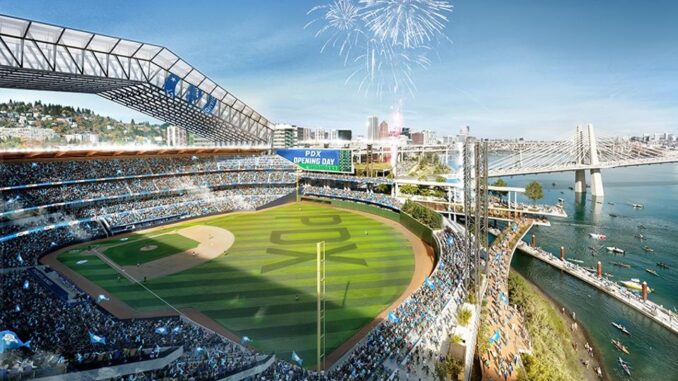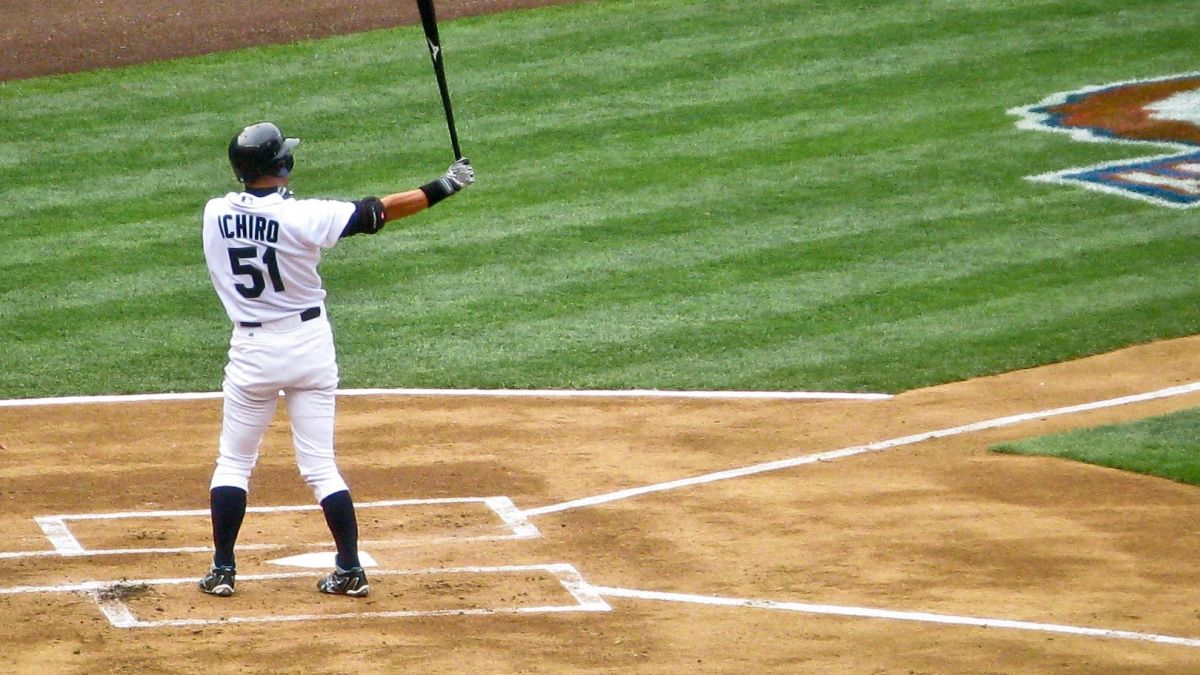
Earlier this week, the Portland Diamond Project completed what has become an annual tradition: rolling out impressive looking renderings for a stadium at yet another location in Portland. Every year, the revealing of the renderings (always at a new location from the previous year) brings about oohs and ahhs from the area sports media establishment and comments from the Diamond Project and local politicos about how close Portland is to having a team. Every year, we go through the same song and dance, and every year, the same hoops that Portland has to jump through to get a team are never addressed. To be clear, it would be amazing for Portland to have a Major League Baseball team. The city offers a beautiful backdrop for baseball and is a worthy home for a team. However, that doesn’t mean it is anywhere close to reality. There are still a large series of obstacles that need to be overcome, and it seems like none of them have ever been addressed.
Hurdle 1: The chicken and the egg game of having an ownership group vs. having a stadium. Identifying land for a stadium and mocking up renderings are actually the easy part of the process, which is why the Diamond Project does it practically every year. However, to bring in a team, the city needs an ownership group to own the team and, hopefully, finance a big chunk of the stadium cost. However, the city needs a stadium to have an ownership group, which brings us to Hurdle Number 2.
Hurdle 2: Team first or stadium first? Without a stadium, Portland’s odds of attracting a team are dim. The city has no temporary area that could conceivably host an MLB team while it’s being constructed, meaning it would have to be done before a team arrives. Major League Baseball is currently dealing with two teams playing in minor league stadiums because they don’t have homes, and it’s doubtful they want to go through that again. MLB would likely be gun-shy about giving the city a team without a stadium deal in place. However, Portland isn’t going to build a stadium without the promise of a team. Kansas City built a brand-new arena over a decade ago to bring in an NHL team, and they are still waiting. A baseball stadium isn’t a multi-purpose facility like an arena, and the city isn’t going to want a stadium sitting empty if its bid falls short and one of several other cities that want a team lands the spot.
Hurdle 3: There needs to be a team to come. If Portland wants a team anyway it can get it, right this moment may be the best time. The former Oakland Athletics are playing in Sacramento, hoping that a deal to move to Las Vegas holds together. The Tampa Bay Rays will be playing in the home of the New York Yankees Single-A team after a hurricane blew the roof off their stadium, which subsequently caused a deal for a new stadium in St. Petersburg to disintegrate. While MLB Commissioner Rob Manfred has said he would like to expand the league, currently, he has two teams that need permanent homes while the television revenue structure that baseball has relied on for decades is falling apart. While many owners would undoubtedly love the cash infusion from expansion fees, it would mean adding another two teams to the equation when divvying up revenue. The impact would be felt more on some teams than others. The Seattle Mariners, for instance, would probably go through a Titanic fit if a team tried to move to Portland. They are used to dominating the northwest market, and should a team suddenly show up three hours south, it would take a chunk out of television and in-person revenue for the Mariners.
Hurdle 4: Public vs Private funding. In recent years, cities and states have begun to sour on the idea of forking over hundreds of millions or billions of dollars to build a stadium for billionaires, which will have a limited positive financial impact on the area. Despite the Portland Diamond project telling the Oregon legislature that a new stadium would bring in thousands of new jobs and significant revenue, those numbers rarely pencil out. Deals for new stadiums in Florida, Chicago, and Kansas City are all hung up by municipalities finally realizing that the money doesn’t pencil out in their favor. Portland has its own examples of this. When the Moda Center (formerly the Rose Garden) was constructed in the 1990s, it was supposed to revitalize the entire Rose Quarter. When upgrades to the arena began, the city heralded the upcoming renovations as “a centerpiece for revitalizing the Rose Quarter” … meaning it clearly didn’t get revitalized the first time. However, MLB wants teams to have public financing for their stadiums. After all, if one city has a privately financed stadium, every city wants to have a privately financed one. That is where most of the money for team owners comes from: earning revenue while playing in a building that you pay no taxes on and that other people paid.
If all those hurdles can be overcome, Portland would be a fantastic destination for a ballpark. While I applaud the Portland Diamond Project for doing their part to keep the dream alive with new architectural renderings on an annual basis, it’s important that Portlanders understand that the city is no closer to bringing a team to Portland than it was a quarter century ago, and the dream remains just that—a dream.




